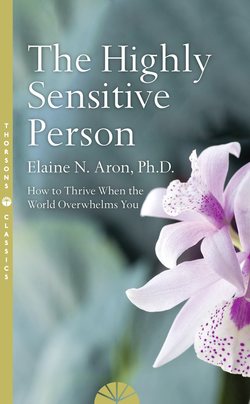Читать книгу The Highly Sensitive Person - Elaine N. Aron - Страница 28
Learning About Our Culture— What You Don’t Realize WILL Hurt You
ОглавлениеYou and I are learning to see our trait as a neutral thing—useful in some situations, not in others—but our culture definitely does not see it, or any trait, as neutral. The anthropologist Margaret Mead explained it well. Although a culture’s newborns will show a broad range of inherited temperaments, only a narrow band of these, a certain type, will be the ideal. The ideal personality is embodied, in Mead’s words, in “every thread of the social fabric—in the care of the young child, the games the children play, the songs the people sing, the political organization, the religious observance, the art and the philosophy.” Other traits are ignored, discouraged, or if all else fails, ridiculed.
What is the ideal in our culture? Movies, advertisements, the design of public spaces, all tell us we should be as tough as the Terminator, as stoic as Clint Eastwood, as outgoing as Goldie Hawn. We should be pleasantly stimulated by bright lights, noise, a gang of cheerful fellows hanging out in a bar. If we are feeling overwhelmed and sensitive, we can always take a painkiller.
If you remember only one thing from this book, it should be the following research study. Xinyin Chen and Kenneth Rubin of the University of Waterloo in Ontario, Canada, and Yuerong Sun of Shanghai Teachers University compared 480 schoolchildren in Shanghai to 296 in Canada to see what traits made children most popular. In China “shy” and “sensitive” children were among those most chosen by others to be friends or playmates. (In Mandarin, the word for shy or quiet means good or well-behaved; sensitive can be translated as “having understanding,” a term of praise.) In Canada, shy and sensitive children were among the least chosen. Chances are, this is the kind of attitude you faced growing up.
Think about the impact on you of not being the ideal for your culture. It has to affect you—not only how others have treated you but how you have come to treat yourself.
SHEDDING THE MAJORITY’S RULE
1. What was your parents’ attitude toward your sensitivity? Did they want you to keep it or lose it? Did they think of it as an inconvenience, as shyness, unmanliness, cowardice, a sign of artistic ability, cute? What about your other relatives, your friends, your teachers?
2. Think about the media, especially in childhood. Who were your role models and idols? Did they seem like HSPs? Or were they people you now see you could never be like?
3. Consider your resulting attitude. How has it affected your career, romantic relationships, recreational activities, and friendships?
4. How are you as an HSP being treated now by the media? Think about positive and negative images of HSPs. Which predominate? (Note that when someone is a victim in a movie or book, he or she is often portrayed as by nature sensitive, vulnerable, overaroused. This is good for dramatic effect, because the victim is visibly shaken and upset, but bad for HSPs, because “victim” comes to be equated with sensitivity.)
5. Think about how HSPs have contributed to society. Look for examples you know personally or have read about. Abraham Lincoln is probably a place to start.
6. Think about your own contribution to society. Whatever you are doing—sculpting, raising children, studying physics, voting—you tend to reflect deeply on the issues, attend to the details, have a vision of the future, and attempt to be conscientious.
